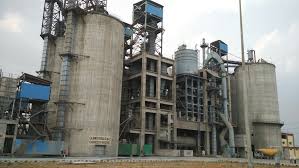 CUBA INAUGURARA LA PRIMERA FABRICA DE CEMENTO LC3 DEL MUNDO.
CUBA INAUGURARA LA PRIMERA FABRICA DE CEMENTO LC3 DEL MUNDO.
Cuba ha anunciado la próxima inauguración de la primera planta en el mundo que producirá el cemento LC3 con bajos niveles de clinker y alta resistencia a los efectos de cloruros, informó el periódico Vanguardia.
La Planta Experimental de Cemento de Bajo Carbono, con una capacidad de producción de ocho a 10 toneladas diarias, está ubicada en Villa Clara, en la Universidad Central Marta Abreu, que está vinculada con el Centro de Investigación y Desarrollo de Estructuras y Materiales (CIDEM).
Según José Fernando Martirena Hernández, director de la instalación, durante los primeros dos meses la fábrica ajustará su engranaje, pues está concebida para funcionar de manera ininterrumpida por periodos de seis meses, con una pausa de 15 días para mantenimiento.
https://youtu.be/bOYUtH8JZvA
La fábrica, cuyo costo asciende a los 240.000 euros, fue financiada por el Proyecto suizo Hábitat 2 y la empresa española IPIAC, con la colaboración del gobierno.
Martirena anunció la ejecución de otras 20 plantas similares en todo el país en los próximos dos años, las cuales cubrirán el déficit de cemento con el aporte de 120.000 toneladas anuales al sistema de la vivienda y a la producción local de materiales de la construcción.
“El cemento de bajo carbono LC3 es un producto desarrollado por el CIDEM junto a la Universidad Politécnica Federal de Lausana, en Suiza, desde el año 2009, aplicado en Cuba y otros países, que permite rebajar el contenido de clinker hasta un 50 %, y sustituirlo por una combinación de arcilla calcinada a la mitad de la temperatura que llevan otros tipos de cementos, y caliza que no lleva calcinación”, explicó.
“Este producto resulta más barato que los cementos tradicionales como el P35; propicia la reducción en un 35 % de las emisiones de carbono a la atmósfera, y posee una alta resistencia al ataque de cloruros, excelente para países insulares como Cuba”, añadió.
La Empresa Geominera de la universidad Marta Abreu operará la planta, que cuenta con un sistema de control automático, y a la que se puede acceder con el empleo de una red virtual.

Ayer, Hoy, Siempre- www.THE CUBANHISTORY.COM-Yesterdays, Today, Always.
 CUBA INAUGURATES THE FIRST FACTORY OF CEMENT LC3 OF THE WORLD.
CUBA INAUGURATES THE FIRST FACTORY OF CEMENT LC3 OF THE WORLD.
Cuba has announced the forthcoming inauguration of the first plant in the world that will produce LC3 cement with low levels of clinker and high resistance to the effects of chlorides, the Vanguardia newspaper reported.
The Low Carbon Cement Experimental Plant, with a production capacity of eight to 10 tons per day, is located in Villa Clara, at the Marta Abreu Central University, which is linked to the Center for Research and Development of Structures and Materials (CIDEM) ).
According to José Fernando Martirena Hernández, director of the facility, during the first two months, the factory will adjust its gear, as it is designed to operate uninterruptedly for periods of six months, with a break of 15 days for maintenance.
The factory, whose cost amounts to 240,000 euros, was financed by the Swiss Hábitat 2 project and the Spanish company IPIAC, with the collaboration of the government.
Martirena announced the execution of another 20 similar plants throughout the country in the next two years, which will cover the cement deficit with the contribution of 120,000 tons per year to the housing system and to the local production of construction materials.
“The LC3 low carbon cement is a product developed by CIDEM together with the Federal Polytechnic University of Lausanne, in Switzerland, since 2009, applied in Cuba and other countries, which allows reducing the clinker content up to 50%, and replace it with a combination of calcined clay at half the temperature of other types of cement, and limestone that does not carry calcination, “he explained.
“This product is cheaper than traditional types of cement such as P35; promotes the reduction in 35% of carbon emissions to the atmosphere, and has a high resistance to chloride attack, excellent for island countries such as Cuba, “he added.
The Geominera Company of the Marta Abreu University will operate the plant, which has an automatic control system, and which can be accessed through the use of a virtual network.
Agencies/ CiberCuba/ Vanguardia/ Carlos Rodríguez/ Internet Photos/ youTube/ Arnoldo Varona/ www.TheCubanHistory.com
THE CUBAN HISTORY, HOLLYWOOD.

Ayer, Hoy, Siempre- www.THE CUBANHISTORY.COM-Yesterdays, Today, Always.



 < CUBA announces the Inauguration of the World First Factory of Cement LC3. VIDEO.
< CUBA announces the Inauguration of the World First Factory of Cement LC3. VIDEO.

